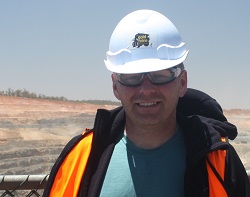PhD dissertation on Multinational Enterprises in the mining industry
|
PhD dissertation on Multinational Enterprises in the mining industry Jacob Taarup, PhD fellow at MSC, successfully defended his dissertation, Managing communities – Mining MNEs’ community risk management practice, on 15 May. Taking its point of departure in research on Multinational Enterprises (MNEs) operating within the Armenian mining industry, Jacob Taarup’s work aims to close a gap in the risk management literature on the identification and mitigation of risk arising from local communities.
|
 |
|
Local communities as a source of risk Small villages and towns that are situated geographically close to the MNEs’ place of operation have been identified as a source of risk to business continuity (BSR, 2003; ICMM, 2015). The mining industry is one of the most exposed to risks from these local communities, where there historically have been many conflicts between mine owners on one side and the people living close to the mine on the other. And with access to new communication technologies, it is possible for even the remotest communities to communicate effectively to a global audience, enabling non-governmental organisations, politicians, investors and other civil society actors access to up-to-date information about mining MNE operations. This improved outreach has meant that mines have been closed due to conflicts with local communities and therefore a need has arisen for MNEs to implement management practices that can effectively mitigate these types of risks.
MNE risk management Jacob Taarup’s research shows that local communities can be regarded as a unique source of risk and that mining MNEs target these specifically in their risk management. Community risk arises when communities apply their resources and thereby subject the mining MNE to risk. Local communities can either apply these resources directly in order to elicit financial, political or cultural actors who can subject the mining MNE to risks, or by partnering with civil society organisations who have resources and knowledge available to them. The mining MNEs manage community risks by allocating resources that increase the reliance of local communities on the mine. The result is that they increasingly regard the mining MNE as legitimate and become reliant on the physical and social benefits that come with mining activities. In turn, this makes it difficult for more critical civil society organisations to gain access and get support from local communities when leveraging their claims against the company.
For further information about the project, contact Jacob Taarup. |
|